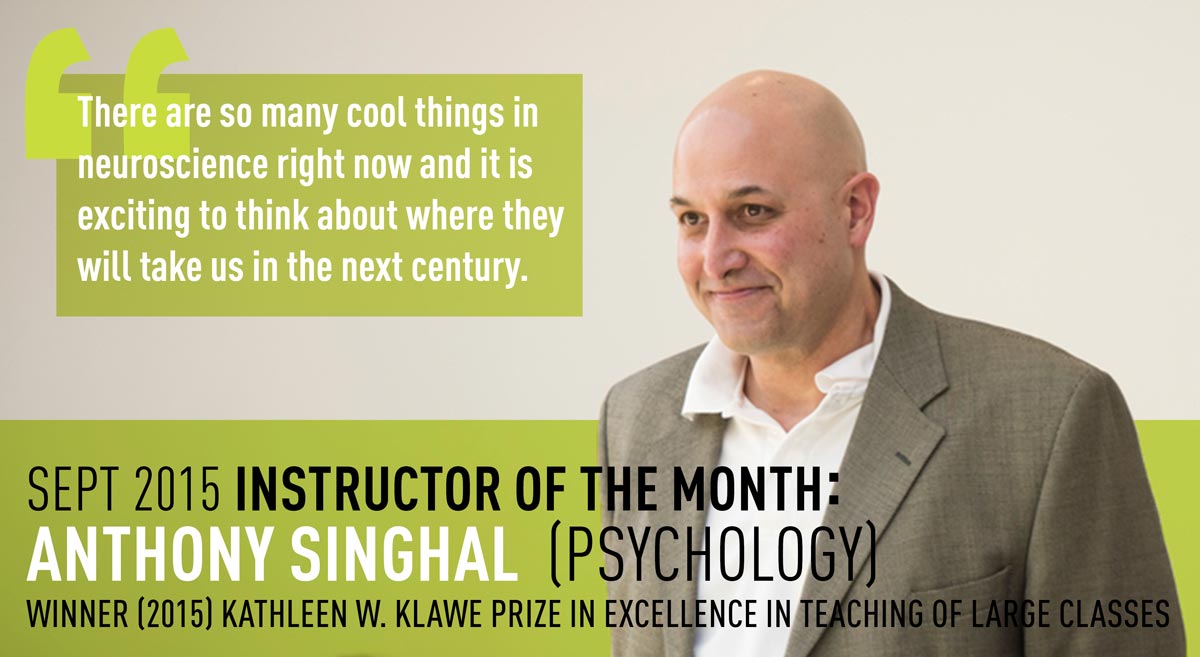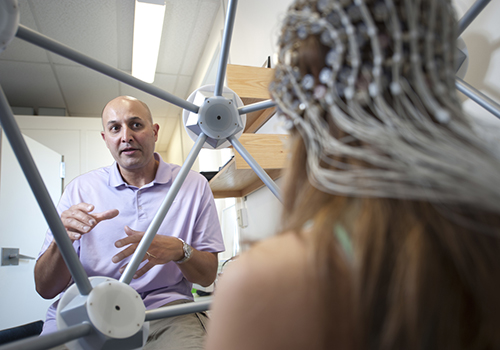
Anthony Singhal is a professor in the department of Psychology, and the 2015 winner of the Kathleen W. Klawe Prize in Excellence in Teaching of Large Classes.
Q: What do you teach?
A: I typically teach courses about the relationship between the brain and behaviour, such as Human Neuropsychology, and Cognitive Neuroscience. I teach at both the undergraduate and graduate levels. I also was the Psychology instructor for Science 100 for two years.
"I was fortunate to have many outstanding teachers as an undergraduate, and I try to emulate them in my own classes."
Q: Why should people learn about it?
A: Throughout human history our species has wondered how it is that we can have independent thought, awareness, and behaviour. This intrinsic curiosity has led to significant work and advancement toward the understanding of the human mind and its relationship to behaviour. As we all know, the primary structure underlying these phenomena is the brain.
Q: What are some of its "real-world" applications?
A: Understanding how the brain works has applications for a range of fields such as, computing science, engineering, medicine, philosophy, physical education, psychology, and social science. For example, the field of neuro-prosthetics is very exciting, and important for therapeutic advances in many movement and neurological disorders.
 Q: What's the coolest thing about this subject area?
Q: What's the coolest thing about this subject area?
A: While we have learned many things about how the brain works, there is also a lot that we don't know. In human neuroscience we are close to where cardiovascular science was over 100 years ago. Now, we know a great deal about the heart and even do heart transplants routinely. There are so many cool things in neuroscience right now and it is exciting to think about where they will take us in the next century.
Q: What's your favourite kind of teaching and/or learning space, and why?
A: I encourage discussion in all my classes, whether there are 200 students in an auditorium or 30 students in a small classroom. Students are often diverse in their interests and academic programs, and I attempt to use discussion to create an environment of inclusiveness to foster learning.
Q: What was your favourite learning experience as an undergrad, and how do you incorporate that experience into teaching your students?
A: I was fortunate to have many outstanding teachers as an undergraduate, and I try to emulate them in my own classes. Some of the things I strive for are to convey my genuine passion and enthusiasm for the material, as well as foster communication skills in students. I also try to encourage independent and critical thinking about the fundamental concepts of the course material.
Q: What is one thing that people would be surprised to know about you?
A: I used to drive a taxi at night when I was an undergrad.